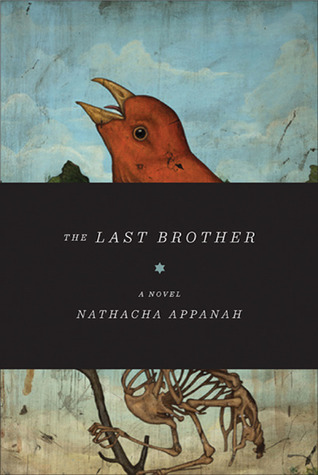 I saw David again yesterday. I was lying in bed, my mind a blank, my body light, there was just a faint pressure between my eyes. I do not know why I turned my head towards the door, since David had not made a sound, not a sound, not like the old days when he used to walk and run a bit lopsidedly and I was always amazed that his thin body, with those legs and arms as long and slender as the reeds that grow beside streams, his face lost amid the soft hair that floated like spindrift from waves, I was amazed that all this, this combination of small, gentle, and inoffensive things should make such a clatter on the ground as David walked along.
I saw David again yesterday. I was lying in bed, my mind a blank, my body light, there was just a faint pressure between my eyes. I do not know why I turned my head towards the door, since David had not made a sound, not a sound, not like the old days when he used to walk and run a bit lopsidedly and I was always amazed that his thin body, with those legs and arms as long and slender as the reeds that grow beside streams, his face lost amid the soft hair that floated like spindrift from waves, I was amazed that all this, this combination of small, gentle, and inoffensive things should make such a clatter on the ground as David walked along.That's what I call a comma splice, to the point of being incoherent. Those two sentences take some deciphering. "As 1944 comes to a close, nine-year-old Raj is unaware of the war devastating the rest of the world. He lives in Mauritius, a remote island in the Indian Ocean, where survival is a daily struggle for his family. When a brutal beating lands Raj in the hospital of the prison camp where his father is a guard, he meets a mysterious boy his own age. David is a refugee, one of a group of Jewish exiles whose harrowing journey took them from Nazioccupied Europe to Palestine, where they were refused entry and sent on to indefinite detainment in Mauritius. A massive storm on the island leads to a breach of security at the camp, and David escapes, with Raj’s help. After a few days spent hiding from Raj’s cruel father, the two young boys flee into the forest. Danger, hunger, and malaria turn what at first seems like an adventure to Raj into an increasingly desperate mission. This unforgettable and deeply moving novel sheds light on a fascinating and unexplored corner of World War II history, and establishes Nathacha Appanah as a significant international voice."
The premise of this book was interesting, and I did end up really liking it. It reminded me of The Tiger's Wife, though it wasn't quite as good as that. Some of the descriptions in it were amazing though. I could really picture the various places that Raj lives when he's a child. The descriptions of Mauritius and just of everything that happens were so life-like and compelling. The comma splices were a off-putting, but they ended up being pretty effective, though some of the sentences were annoying. They did abate as the book went on.
The blossoming friendship between Raj and David didn't thrill me; it wasn't amazing and I didn't really feel the strong bond. But despite that, The Last Brother was a really good work of historical fiction. It was just the language and the subject matter that was so amazing and fascinating and compelling. It's a fairly short book, but I took a little longer to read it than I usually take for a book of this length.
Goodreads also so graciously recommended this one to me, and I must say, their recommendations have been good so far, despite it being a computer recommending generic books to me based upon my preferences. I'm going to be reading more books recommended by Goodreads very, very soon.
The Last Brother was a bit depressing, but overall really a great, luminous novel.
Read The Last Brother:
- if you like historical (WWII) fiction
- if you like books set in Mauritius (in the Indian Ocean)
- if you like stories of friendship
 | ||||
| Very Good! I would recommend this book! |
No comments:
Post a Comment